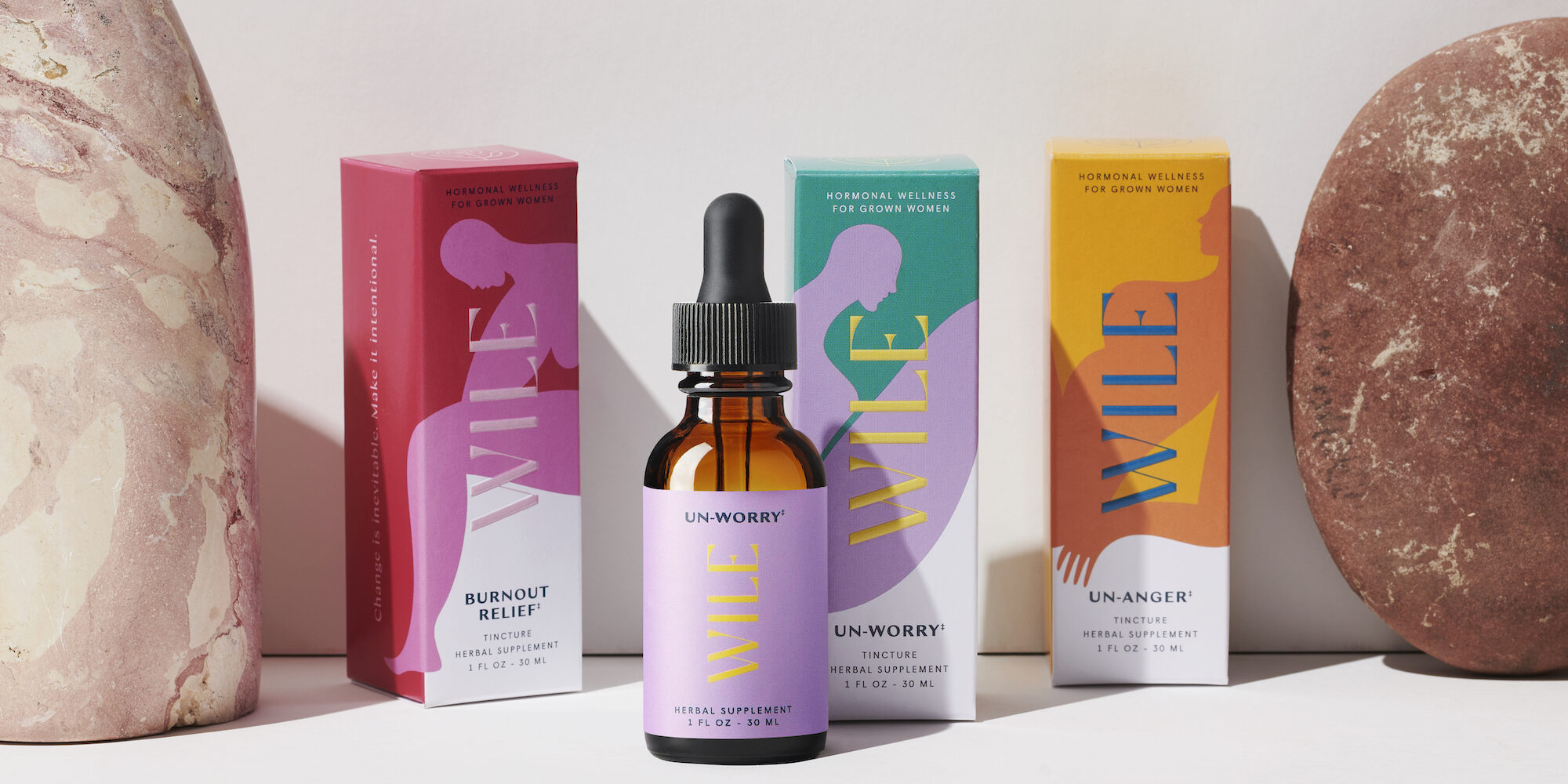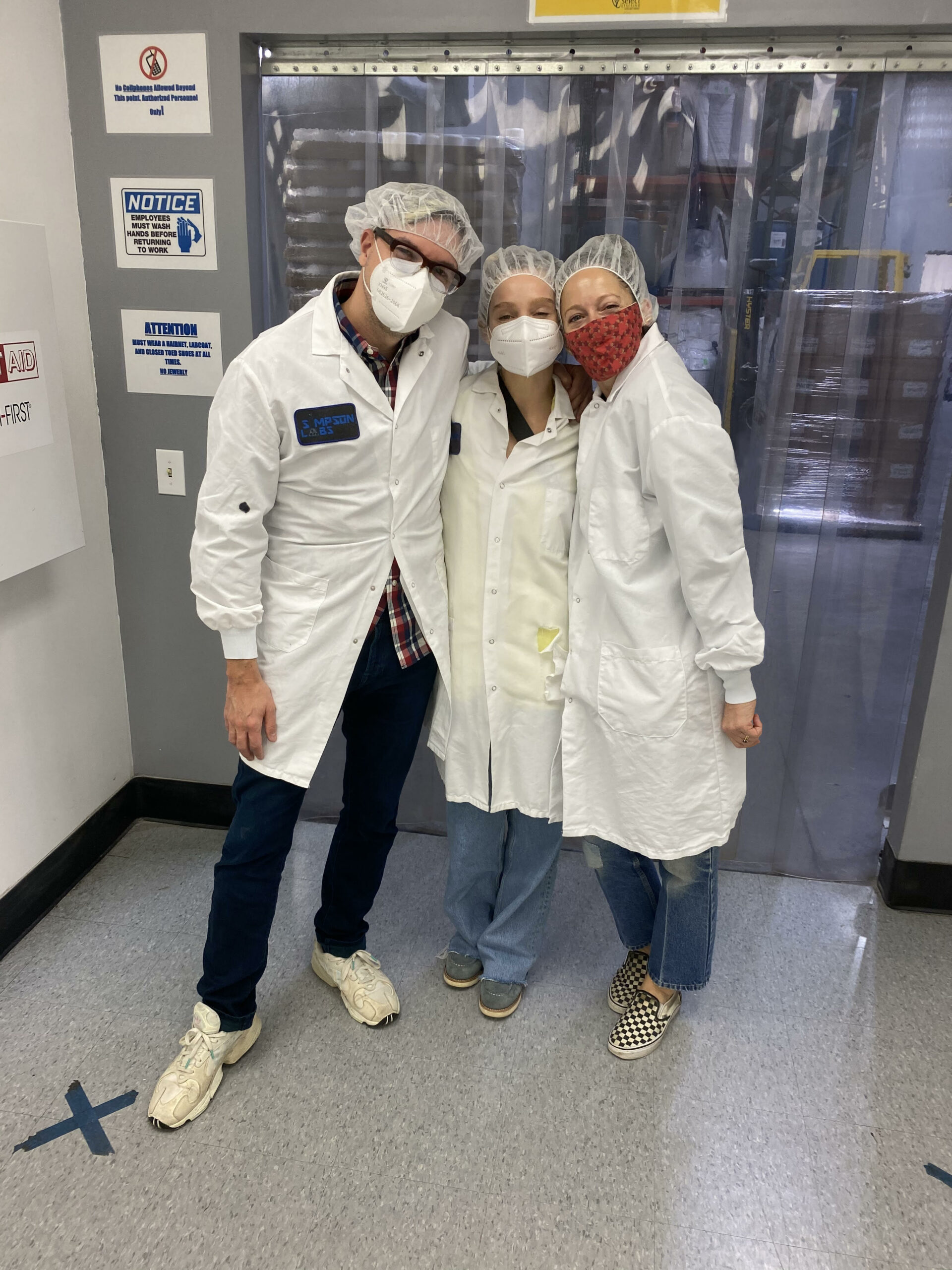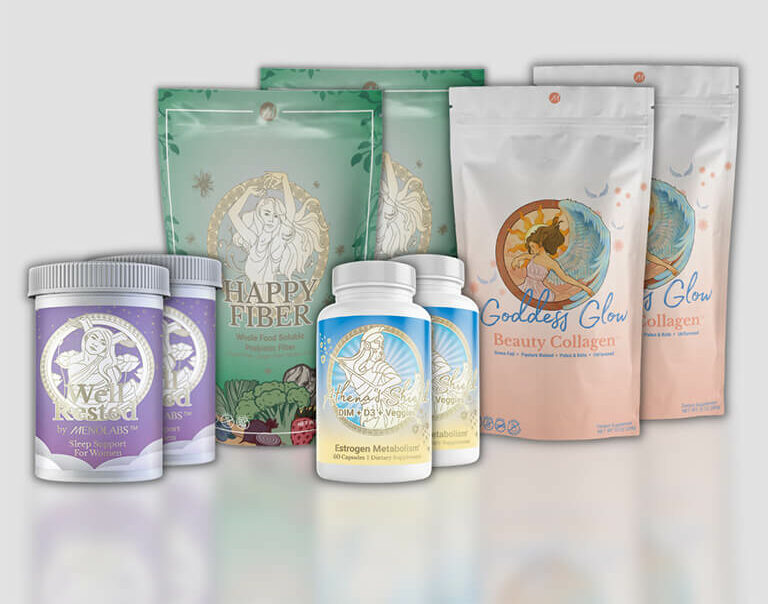
In Partnership With Brands, Women Celebrities Are Opening Up About Menopause
When Wile, an ingestible wellness brand for women 40-plus launched last November, Gwendolyn Floyd, Corey Scholibo and Julie Kucinsk were announced as its founders, but there’s a fourth founder whose well-known name was initially kept under wraps.
Late last month, Wile revealed that actress Judy Greer is the fourth founder. “She was actually there from the beginning,” says COO Scholibo. “She was in our first investor meetings. She went to the factories and tried flavors and helped us develop our products. She went to retailer meetings with us. Now was finally the time to announce her, but she is a true founding partner.”
Scholibo and Greer are longtime friends, and their relationship was the genesis of the business partnership. At the same time Floyd, Kucinski and Scholibo were initially discussing creating a brand for women 40 and over, Greer was dealing with not always feeling like herself and seeing doctors who weren’t providing effective solutions. “I thought, ‘All the smartest women I know are talking about this topic, there must be something amazing here,’” says Scholibo. “I introduced Judy to Gwen, and she saw her vision and she couldn’t wait.” He details Greer will be featured in advertising, live chats and community forums to “make things relatable and fun to our customers.”

Starting about two years ago, there was a rush of celebrities like Lily Allen, Cara Delevingne and Dakota Johnson joining forces with sexy toy companies. Today, Greer’s position at Wile is part of an emerging trend of celebrities lending their publicity muscle to menopause- and perimenopause-focused brands, including State Of helmed by Stacy London and a forthcoming brand from biotechnology company-cum-brand builder Amyris linked with Naomi Watts launching in the second half of this year. Like the target audiences of the brands, the celebrities involved in them are navigating the choppy waters of menopause. The brands hope messaging from them will lower the many barriers—stigma and lack of education being two of the biggest—in the historically underserved menopausal market.
“For Naomi, it was very personal to her life, and that’s always what we’re looking for,” says Han Kieftenbeld, CFO of Amyris, which has also inked deals with Jonathan Van Ness for the haircare brand JVN Hair and Rosie Huntington-Whiteley for the clean cosmetics brand Rose Inc. “She’ll be very engaged in crafting the messages, the go-to market. It’s got to be somewhat personal for people and certainly is for her. When the product shows up in the public domain, she’ll be a strong voice for not just the product, but for all that goes on around menopause and creating greater visibility.”
Doubling down on its commitment to the menopause category, Amyris is acquiring MenoLabs, a menopause wellness company with supplements designed to address perimenopause and menopause symptoms, and MenoLife, a menopause health tracker app. When the MenoLabs deal was unveiled last month, John Melo, president and CEO of Amyris, said the combination of MenoLabs and the menopause brand tied to Watts has the potential to hit an estimated $30 million in first-year revenues.
Putting women with large platforms in front-facing roles at menopause-related brands may be a smart move given how little is still known about the myriad of physical and psychological changes that come with perimenopause and menopause such as vaginal dryness, itchy skin, night sweats, anxiety, sleep disruptions and weight fluctuations. The objective is for them to reach women who, like Greer, aren’t finding answers in the medical system. It’s that gap in traditional medical care in the United States that’s a major reason why menopause beauty, wellness and technology companies are surfacing and flourishing. Globally, the menopause market is expected to reach $22.7 billion in sales by 2028.

Will star power translate to sales and engagement? Lindsey Seyman, president and co-founder of advertising agency Fancy, cautions brands not to lean too heavily on it. “There is always space for the right celebrity or influencer partnership. These relationships build awareness and reach for brands, and that part of your media mix is relevant for brands that target women over 40,” she says. “That said, we do see women over 40 being much more discerning and critically thinking about brands before engaging with them. So, a celebrity endorsement might add awareness points, but the engagement plan has to have moments of proof and authenticity to actually move the needle for sales.”
Fancy recently completed a survey of more than 500 American women over 40 years old to explore their opinions on advertising and marketing. One survey question was about how women feel about emerging wellness brands versus established wellness brands. Overwhelmingly, they responded that they trust established brands and are interested in tried-and-true products.
“They’ve been there, seen that and are looking for real solutions that work,” says Seyman. “This isn’t to say a new brand can’t gain her trust, but there has to be real effort and a considered approach to proving to her you aren’t just a fad brand. How are you tapping into trusted experts to validate your claims? How are you teaching her something that will make her experiences better? These are the types of questions your overall engagement plan needs to answer.”





Leave a Reply
You must be logged in to post a comment.